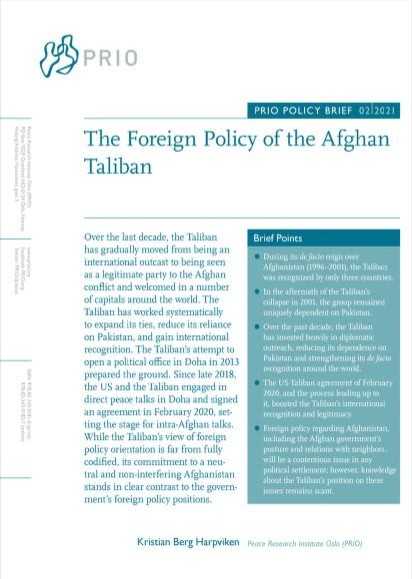Over the last decade, the Taliban has gradually moved from being an international outcast to being seen as a legitimate party to the Afghan conflict and welcomed in a number of capitals around the world. The Taliban has worked systematically to expand its ties, reduce its reliance on Pakistan, and gain international recognition. The Taliban’s attempt to open a political office in Doha in 2013 prepared the ground. Since late 2018, the US and the Taliban engaged in direct peace talks in Doha and signed an agreement in February 2020, setting the stage for intra-Afghan talks. While the Taliban’s view of foreign policy orientation is far from fully codified, its commitment to a neutral and non-interfering Afghanistan stands in clear contrast to the government’s foreign policy positions.
Harpviken, Kristian Berg (2021) The Foreign Policy of the Afghan Taliban, PRIO Policy Brief, 2. Oslo: PRIO.








